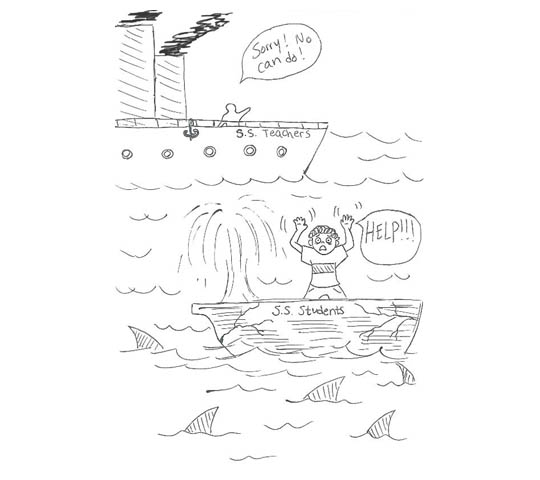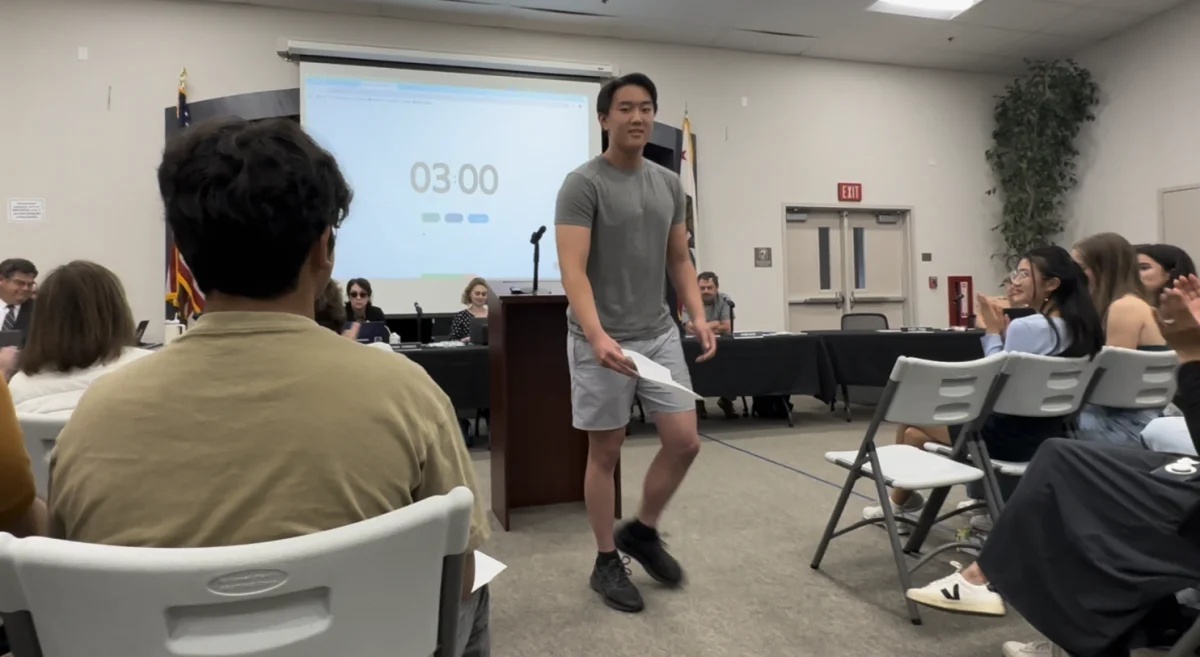
Yes: Inflation saves students
The argument for grade inflation in a perfect world is nearly impossible to validate. Unfortunately, in today’s world a pandemic of high grades and unmerited bolstered GPAs has flooded college admissions. For LAHS students to have a chance at competing with other students, a policy of leniency and encouragement for extra credit must be implemented across campus.
There is no greater argument for grade inflation than that other schools are doing it as well.
“I’d rather have a teacher who inflates grades only because it’s done at so many other schools,” sophomore Sarah Zanjani said. “Not doing so would greatly reduce our students’ chances of getting accepted into prestigious colleges.”
For example, in a few AP history classes at Saint Francis, an 86 is considered a grade high enough to receive an A. And although it is nice to believe that the difficulty of the class would be greater as well, it is entirely possible that this is not the case across the country.
History teacher Robert Freeman maintains that “the hardest metals are made in the hottest ovens” and that generally the AP history classes at LAHS merit 90 percent as an A and only allow one extra credit opportunity per semester.
The way Freeman and others who do not inflate grades run their classes is not wrong in principle—in fact, it is right. However, other schools’ policies have changed the principle.
Though physics teacher Adam Randall does not believe “we should follow the unethical standards of other schools,” the reality is that the school must. Conventional beliefs in combating grade inflation are ineffective in reality.
Standardized tests provide un-inflated benchmarks between all high schools. Unfortunately, because colleges widely regard a student’s GPA as more vital than their standardized test scores, the inflated GPAs of other schools’ students will outweigh any standardized test scores.
And if standardized test scores level the playing field, then why not grant this school’s students the benefits of higher grades?
Other than the benefits for college admissions, an improved GPA can also help for financial aid. In addition, it can provide academic benefits as well, according to history teacher Seth Donnelly.
“I do think that the idea of extra credit, within limits, is healthy for all classes,” Donnelly said. “[Students] are still doing work. It’s not that I’m giving anything away.”

No: Inflation devalues A’s
When report cards arrive, many flaunt GPAs of 4.2, 4.3 and above. While some students do merit this, many only receive these high grades due to a process called grade inflation. This is when teachers artificially raise the grades of students, with methods ranging from curving tests to awarding excessive extra credit.
Inflating grades hurts many average students, who think they merit a passing grade when they do not. It also hurts high-achieving students, since transcripts cannot differentiate between students who work hard for an A and those who do a plethora of extra credit to barely scrape one.
There is never a reason to lower the standards of an A just to get more students to the A level. Students who do not work hard enough to earn an A on a test should learn from their mistakes and try harder next time. Teachers should not compromise what A quality is just so they don’t hurt the feelings of a few students or because of pressure from administrators to pass a certain number of kids.
Certainly, some colleges look for a 4.0 as a standard of academic performance. But when a large number of students have such high grades, it becomes an expectation rather than a bonus. There is no way for colleges to distinguish between candidates who have merited an A and those who haven’t, leading colleges to accept less deserving candidates.
Those who use grade inflation to get into colleges will suffer when they find themselves unprepared for college classes. According to The San Jose Mercury News, approximately 60 percent of CSU freshmen are taking remedial, high-school level classes in math and English. While they were able to gain acceptance to the universities, they weren’t at the level expected of someone at that college. Grade inflation causes students to falsely believe they are ready for college.
“[Students] get into college but no one ever keeps track of who gets out of college,” physics teacher Adam Randall said, “That’s a real danger.”
Although the problem won’t go away anytime soon, teachers should be clear in their grading policies and guidelines and stick to them firmly. Students can try to understand why they received the grades that they did and work to improve their knowledge instead of improving their ability to plead with their teachers.
“Let the parents be upset, let the students be upset let the administrators be upset, let whoever be upset, but focus on the student.” Randall said.








